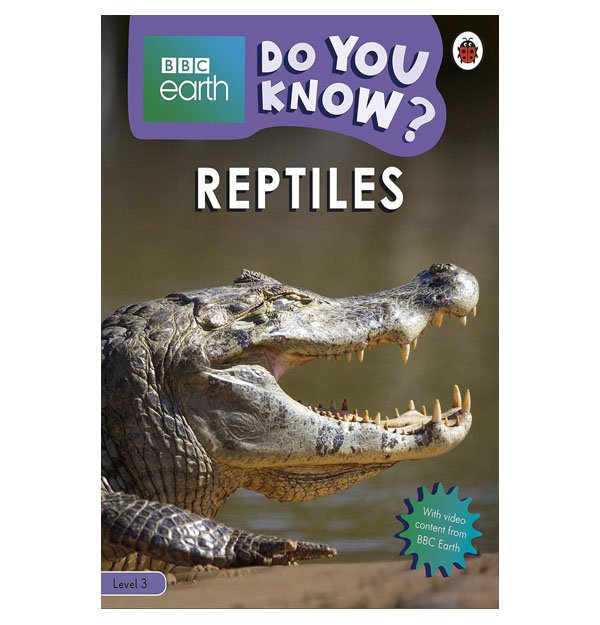No products in the cart.
Do You-Know-Level 3 ? BBC-Earth-Reptiles
Exploring the World of Reptiles
“Do You Know? Level 3 – BBC Earth: Reptiles” takes young readers on a fun journey into the world of reptiles. This educational content, part of the BBC Earth series, introduces children to different reptilian species, like snakes, lizards, turtles, and crocodiles. Each section explains these creatures’ unique traits, habitats, and survival methods in an engaging way.
What Makes a Reptile?
Do You-Know-Level 3 ? BBC-Earth-Reptiles – cold-blooded animals covered with scales. They depend on the sun or shade to regulate their body temperature, unlike humans, who maintain a steady internal temperature. This feature, known as ectothermy, lets reptiles survive in places where other animals struggle. Some reptiles bask in the sun to warm up, while others find cool areas to avoid overheating. These animals also have diverse skin textures. Some have smooth scales, while others sport tough, armor-like skin that protects them from predators.
Feeding and Hunting Skills
Do You-Know-Level 3 ? BBC-Earth-Reptiles – resourceful hunters, each with its own way of catching food. For example, snakes use their bodies to constrict their prey, while chameleons catch insects with a lightning-fast tongue. Crocodiles can hold their breath underwater for extended periods, waiting to ambush their prey. These unique skills help reptiles thrive in different environments. Quick facts like these bring excitement to learning and help kids see how reptiles adapt to survive.
Where Reptiles Live
Reptiles live in many different places, from deserts to rainforests and even high mountains. For example, rattlesnakes prefer dry desert areas, while alligators live in swamps and wetlands. Turtles can live both on land and in water, and some lizards have adapted to high altitudes. This adaptability shows that reptiles are true survivors. Each environment suits the specific needs of the reptiles living there. Children will discover why certain reptiles thrive in certain places, and they’ll understand the role these creatures play in the ecosystem.
Interactive Learning Activities
To keep learning fun, the content includes quizzes and activities that reinforce each topic. For instance, children might match reptiles to their habitats or name features that help them survive. These interactive sections let children apply what they’ve learned and add an element of fun. The activities also help kids retain the information, making it more likely they’ll remember it in the future.
The Importance of Conservation
Do You Know? Level 3 – BBC Earth emphasizes why it’s important to protect reptiles. Many species, such as sea turtles, face dangers from habitat loss and climate change. Through this content, children gain an understanding of conservation and why protecting these animals matters. Learning about endangered reptiles can inspire young readers to care about wildlife and think about how they can help.
In Summary
Do You Know? Level 3 – BBC Earth: Reptiles is a colorful and interactive educational resource that brings the world of reptiles to life. Through engaging explanations, quizzes, and fun facts, young minds are invited to explore nature. This content will inspire curiosity about reptiles and foster an appreciation for the natural world.


Reviews
There are no reviews yet